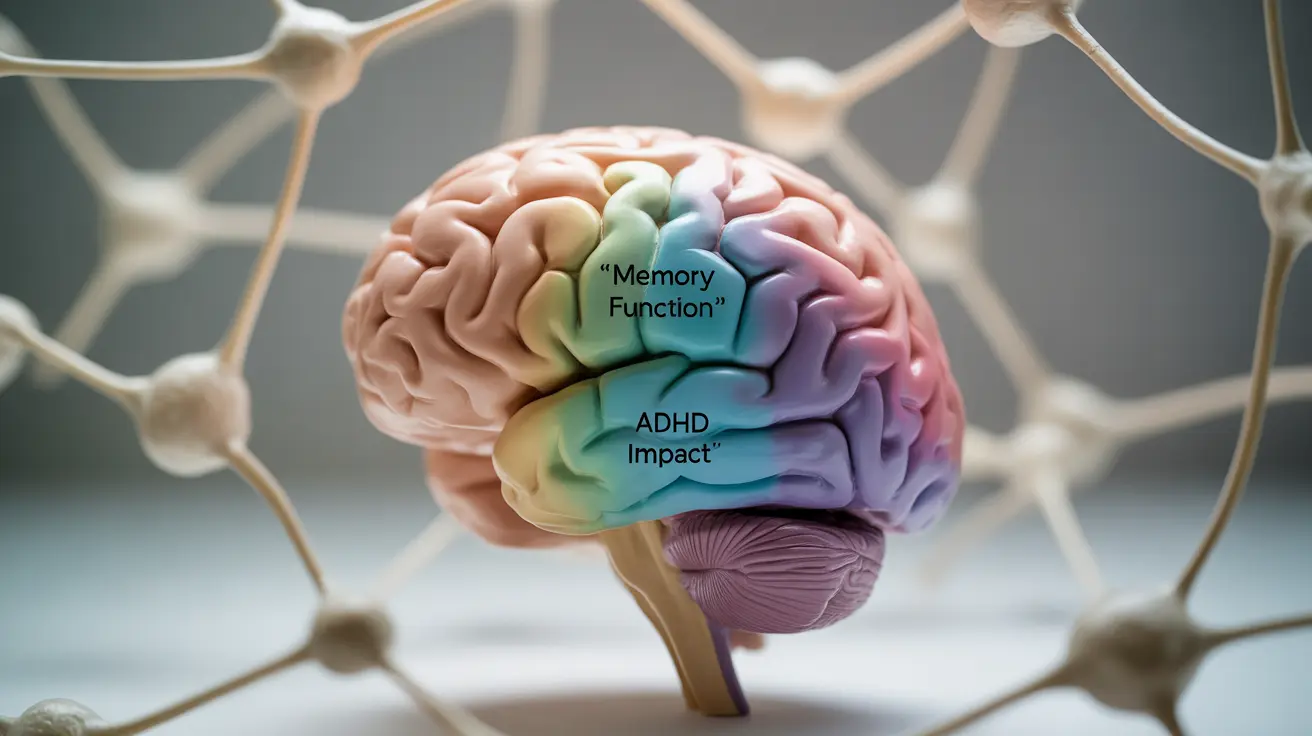Attention-deficit/hyperactivity disorder (ADHD) significantly impacts cognitive functions, with memory difficulties being a common and challenging aspect of the condition. Understanding how ADHD affects memory can help individuals and their families better manage daily challenges and implement effective coping strategies.
The relationship between ADHD and memory is multifaceted, affecting various aspects of memory function, from working memory to long-term recall. These memory challenges can impact academic performance, work productivity, and everyday tasks, making it crucial to understand and address them effectively.
How ADHD Impacts Working Memory
Working memory, often described as the brain's "mental sticky note," is particularly affected by ADHD. This crucial cognitive function allows us to temporarily hold and manipulate information for immediate use. People with ADHD often struggle with:
- Following multi-step instructions
- Keeping track of tasks in progress
- Remembering items on a mental to-do list
- Maintaining focus during conversations
These challenges occur because ADHD affects the brain's executive functions, which are responsible for organizing, prioritizing, and managing information in real-time.
Short-Term and Long-Term Memory Effects
While ADHD primarily impacts working memory, it can also influence both short-term and long-term memory processing. The connection stems from attention difficulties rather than actual memory storage problems:
Short-Term Memory Challenges
- Difficulty remembering recently provided information
- Trouble recalling where items were placed
- Problems remembering appointments or commitments
Long-Term Memory Impact
- Inconsistent recall of previously learned information
- Difficulty retrieving memories when needed
- Challenges with organizing and accessing stored information
Effective Memory Management Strategies
Several evidence-based approaches can help improve memory function in individuals with ADHD:
External Support Systems
- Using digital calendars and reminder apps
- Implementing organizational systems
- Creating written checklists
- Setting up visual reminders
Cognitive Techniques
- Breaking information into smaller chunks
- Using visualization techniques
- Developing memory-enhancing routines
- Practicing active recall methods
The Role of Treatment and Lifestyle Modifications
A comprehensive approach to managing ADHD-related memory challenges often includes:
- Medication management when appropriate
- Regular exercise and physical activity
- Adequate sleep hygiene
- Stress management techniques
- Proper nutrition and hydration
Frequently Asked Questions
How does ADHD specifically affect working memory function in daily life?
ADHD impacts working memory by making it difficult to hold and manipulate information in the moment, affecting tasks like following instructions, remembering temporary information, and managing multiple steps in a process.
Can ADHD cause problems with short-term and long-term memory, and what are the main reasons?
Yes, ADHD can affect both short-term and long-term memory, primarily due to attention difficulties during the initial information processing stage, rather than actual memory storage problems.
What treatments or strategies help improve memory difficulties related to ADHD?
Effective treatments include medication, external organizational tools, cognitive strategies, and lifestyle modifications such as regular exercise, proper sleep, and stress management techniques.
How are working memory deficits linked to ADHD symptoms like inattention and impulsivity?
Working memory deficits are closely connected to core ADHD symptoms, as difficulty maintaining attention and controlling impulses can interfere with the brain's ability to process and manage immediate information effectively.
Are mindfulness and cognitive training effective for managing memory problems in people with ADHD?
Research suggests that both mindfulness practices and cognitive training can be beneficial tools for managing memory difficulties in ADHD, particularly when used as part of a comprehensive treatment approach that includes other evidence-based strategies.




